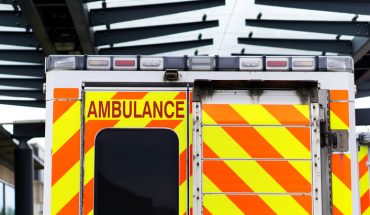Unused prescription medicines cost the NHS £300 million every year – 40% of Brits admit binning unused medications, potentially wasting up to an estimated 445 million prescriptions a year.
- More than a third (36%) of people admit to taking potentially harmful medications, as a result of not checking their use-by date
- 4 in 10 people regularly restock their medicine cabinets, with 25-34 year olds the most savvy at keeping medication in stock
- A further 3 in 10 people (29%) also admitted to taking medications not prescribed to them, with 28% borrowing medication from friends if they don’t have it in their own cupboards
Chemist4U has surveyed 2,000 people from across the UK to find out how they manage their medicine cabinets, from the medications they like to keep in stock, to how often they clear out unused or out of date medications. Take a look at the full findings here: https://www.chemist-4-u.com/guides/pharmaceutical-advice/uk-medicine-cabinets/
Keeping a well-stocked medicine cabinet is a good way to be prepared for any common illnesses or health problems that can take you by surprise. However, they’re also a part of the home that can often be neglected, with half-empty packets and bottles strewn haphazardly around the bathroom.
So, how good are we at keeping our medicine cabinets stocked up appropriately, and how do we manage old or unused medications?
Prescriptions going to waste
From September 2020-August 2021 there were 1,112,384,981 prescriptions prescribed in England. Chemist4U surveyed 2,000 respondents in England and up to 40% of people admitted to throwing away unused prescription medication. Based on these results of 2 in 5 people throwing away unused prescription medication, an estimated figure of up to 444,953,992 prescriptions could be wasted and thrown away. It is important to note that individual prescriptions can vary from one item to multiple items and some medication may be considered unused when no longer needed, the treatment course has ended or there have been changes to the diagnosis.
This statistic is particularly alarming given the cost of medications to the NHS, despite 56% of people saying they’re aware of the costs associated with prescriptions. If the cost of unused prescriptions was reduced, the NHS could instead pay for more community nurses, or drug treatments for significant illnesses.
With 40% of people throwing unused medication in the bin, there’s also clearly a lack of knowledge around the best way to dispose of medications – instead, medications should be taken back to a pharmacy, or sent away to an online provider for safe disposal.
How are we stocking our medicine cabinets?
Of the 2,000 people surveyed, 4 in 10 (41%) told us that they regularly restock their medicine cabinets, making sure they have all of the essential supplies on their shelves. However, those aged 25-34 years old are most likely to do a regular re-stock, with almost half saying that they do this, followed by 35-44 year olds (48%), with those aged 55+ the least likely to do a restock (32%).
When it comes to the medications we like to keep in stock, paracetamol and ibuprofen are revealed as the two most popular products, with more than half (52%) of people keeping a pack of paracetamol in the house at all times, and 36% keeping stock of ibuprofen. Cold and flu tablets (28%), antiseptic cream (26%) and vitamins (25%) were also among the top five medications.
However, surprisingly more than 7% of people admitted to not having any medicines in their house, with almost 1 in 10 men (9.85%) without any medical supplies, vs just 4.56% of women.
The last items left on the shelf
Although more than 3 in 5 (62%) people check the use-by dates on their medications, more than a third (36%) admit to taking medicines without looking at the label first. Expired medications can be less effective, or even harmful, due to changes in chemical composition or strength over time.
As a result, it’s important to regularly review your medications and clear out any that are past their best. Nearly half (47%) of people surveyed agreed that this is something they do regularly, however, more than 2 in 10 (22.92%) said that this isn’t something they do on a regular basis.
Looking at the products that are left on the shelf for the longest, paracetamol tablets are the item that many people (7%) found to be the oldest in their cupboards. Vicks (6.9%), ibuprofen (4%) and cough medicines (3.8%) were also among the top three. However, more specific and potentially one-time purchase products for a short-term condition such as bite cream, eye drops and inhalers also featured among the fifteen oldest products.
Our medicine cabinet secrets
Although many people regularly restock their medicine cabinets and ensure that they’re covered for any eventuality, those that don’t often find their medications through slightly unconventional methods when needed. Nearly three in ten (29%) people surveyed admitted to taking medications that weren’t prescribed for them, a potentially dangerous habit as unless prescribed by a doctor, medications could be ineffective or cause serious reactions. Of those taking medication not prescribed for them, Millennials were the age group most likely to do this, with more than four in ten (42%) having done so previously.
A similar number of people (28.41%) said that they also borrow medication from their friends if they don’t have it in their cupboards, with those aged 16-24 most likely to do so, with 45.32% agreeing to this statement. The number of those borrowing medication does, however, decrease significantly with age, with only 11.37% of those aged 55+ likely to borrow medication.
For more information on our medicine cabinet secrets, visit Chemist4U.
James O’Loan, Pharmacist and CEO at Chemist4U comments:
“It’s great to see that so many people are keeping a stock of essential medicines in their home, so that they can treat any illnesses or ailments effectively and quickly where self-treatment can be used. However, it’s alarming to see safe use of medicines is not always being followed, with the borrowing of medications, and taking prescription medications without a prescription a fairly common occurrence. This can have serious consequences, so it’s always advisable to speak to a GP, pharmacist or other health professional if you have any worries or concerns and feel like you may need medical assistance.
“It’s saddening to see just how much medication is being thrown away, and the cost of this to our health services and the environment if not properly disposed of. In some cases, particularly for items like topical creams, eye drops and inhalers, that may be used for short-term conditions, there’s always a high chance that not all of the product may be used – in cases like this, it’s important to dispose of any medication that’s no longer needed in the correct way, rather than simply throwing it in the bin too.”
The medicines Brits like to have most in their cupboards:
|
Rank |
Medicine |
% of Brits who keep medicine in cupboard |
|
1 |
Paracetamol |
52% |
|
2 |
Ibuprofen |
36% |
|
3 |
Cold and flu tablets |
28% |
|
4 |
Antiseptic cream |
26% |
|
5 |
Vitamins |
25% |
- Christmas Is for All - 19th December 2025
- Intense influenza season driven by new strain - 19th December 2025
- KFSHRC Develops Novel Technique to Treat Inner Ear Disorders - 19th December 2025







